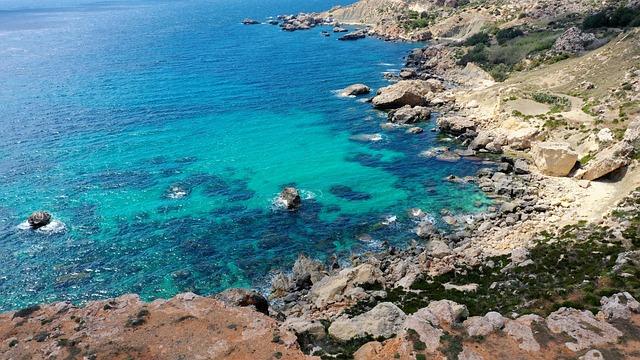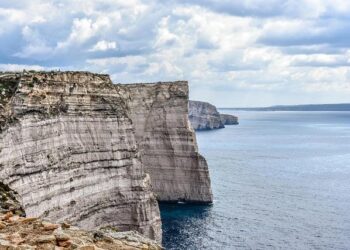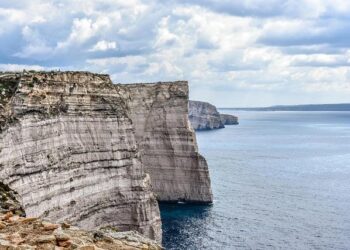As more British migrants seek new opportunities abroad, Malta is rapidly emerging as a surprising hotspot, drawing comparisons to the glitzy allure of Dubai. This small Mediterranean island nation, long known for its historic charm and temperate climate, is now capturing the attention of UK residents with its thriving economy, favorable tax environment, and burgeoning lifestyle appeal. In this article, we explore why Malta is becoming the preferred destination for many Britons, examining the factors behind this migration trend and what it means for both the island and those making the move.
Malta’s Economic Boom Draws UK Expats Seeking Opportunity and Sunshine
Over recent years, Malta has witnessed a significant influx of British expatriates, captivated by its thriving economy and enviable Mediterranean climate. The island’s dynamic job market, particularly in tech, finance, and gaming sectors, has transformed Malta into a magnet for professionals seeking both lucrative career prospects and an enhanced quality of life. Unlike traditional migration hubs, Malta offers a unique combination of favorable tax incentives, a robust English-speaking environment, and strategic access to European markets, making it an increasingly attractive alternative to more saturated destinations.
Key factors driving this migration trend stem from the island’s well-planned economic policies and lifestyle appeal. The government’s commitment to nurturing innovation ecosystems has made Malta home to numerous startups and established international firms. Meanwhile, the sun-soaked landscape provides a year-round outdoor lifestyle that appeals to those tired of the unpredictable British weather. Below is a snapshot comparison illustrating Malta’s appeal against similar expat destinations:
| Factor | Malta | Dubai | Spain |
|---|---|---|---|
| Corporate Tax Rate | 5-35% | 0% | 25% |
| English Proficiency | High | Moderate | Moderate |
| Average Annual Sunshine Hours | 3,000+ | 3,500+ | 2,800+ |
| Cost of Living | Moderate | High | Moderate |
| EU Membership | Yes | No | Yes |
- Thriving sectors: finance, gaming, blockchain, tourism
- Legal framework: business-friendly with EU protections
- Community: growing UK expat network and cultural integration
Comparing Living Costs and Lifestyle Benefits Between Malta and Dubai
When evaluating everyday expenses, Malta offers a noticeably more affordable lifestyle compared to Dubai’s fast-paced extravagance. Housing in Malta tends to be cheaper, particularly outside major hubs like Sliema and St. Julian’s, where rental prices remain accessible for most UK migrants. Groceries, dining out, and local transport also come at a fraction of the cost one might expect in Dubai’s luxury-driven market. While Dubai boasts a tax-free income environment, Malta’s moderate living costs and favourable tax treaties create a compelling financial balance for expatriates seeking stability without sacrificing quality.
Beyond finances, lifestyle choices diverge in fascinating ways:
- Community Feel: Malta’s close-knit, Mediterranean communities contrast with Dubai’s cosmopolitan, transient population.
- Climate: Both enjoy sunshine, but Malta has milder winters and less intense summer heat.
- Work-Life Balance: Malta’s slower pace encourages a more relaxed daily rhythm, while Dubai’s work culture is often more demanding.
| Aspect | Malta | Dubai |
|---|---|---|
| Average Monthly Rent | £800 Р£1,100 | £1,500 Р£3,000 |
| Public Transport Cost | £25 Р£40 | £60 Р£100 |
| Climate | Mild Winters, Hot Summers | Hot Year-Round, Humid Summers |
| Community Vibe | Close-knit, Traditional | Cosmopolitan, Fast-Paced |
How UK Migrants Can Navigate Residency and Property Investment on the Island
For UK migrants aiming to establish a foothold on the island, understanding Malta’s residency requirements is paramount. The country offers several pathways, including permanent residency permits via investment or employment, each tailored to different financial and professional backgrounds. Navigating the bureaucracy can be streamlined by consulting certified agents who specialize in Maltese immigration laws, ensuring all documents meet legal standards. Additionally, Malta’s Citizenship by Naturalization for Exceptional Services provides a long-term goal for those committed to integrating fully into the local community.
When it comes to property investment, the landscape is as dynamic as it is promising. Malta has seen a surge in demand for residential and commercial properties, making it essential for investors to understand both market trends and regulatory frameworks. Popular options include purchasing property under the Malta Individual Investor Programme (MIIP) and acquiring homes in designated Special Designated Areas (SDAs), where foreigners can buy without restrictions. Below is a summary table highlighting key considerations for UK migrants:
| Aspect | Opportunity | Requirement |
|---|---|---|
| Residency Permit | Fast-track options for investors and skilled workers | Proof of income, background checks |
| Property Purchase | Access to SDA zones, competitive market prices | Minimum investment ‚ā¨270,000 |
| Tax Incentives | Attractive schemes for new residents | Compliance with local tax regulations |
- Legal advisory services: Crucial for contract review and compliance.
- Financial planning: To optimize investment returns and residency benefits.
- Cultural integration: Joining expat and local networks smooths the transition.
The Conclusion
As Malta continues to attract a growing number of UK migrants seeking a blend of Mediterranean lifestyle, favorable tax conditions, and expanding business opportunities, parallels with Dubai’s rapid transformation are increasingly drawn. Yet, while both destinations offer gateways to new economic horizons, Malta’s smaller scale and unique cultural fabric set it apart in ways that defy a simple comparison. Whether Malta will cement its status as the next Dubai remains to be seen, but its rising appeal among UK expatriates underscores a shifting landscape in global migration and investment trends.
















